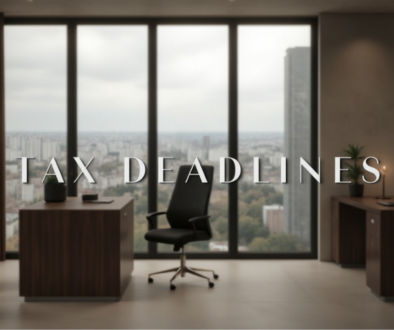Real Estate Tax Tips During the Coronavirus Pandemic: Part IV
By Andrew Gradman, Esq.
Trusted Advisor at AB FinWright LLP (www.abfinwright.com) and Founder at Gradman Tax (www.gradmantax.com)
Accepted for publication in the CEB Real Property Law Reporter; reprinted with permission. The published version will reflect new developments and may contain proofreading and other changes. The author thanks Michael Wiener for comments.
This article is the fourth of a six-part series titled Real Estate Tax Tips During the Coronavirus Pandemic which describes selected deadline extensions and tax refund opportunities relating to real estate and the coronavirus pandemic.
- Introduction and overview of disaster relief provisions
- Net Operating Loss (NOL) Carrybacks (IRC §172)
- Limitation on Excess Business Losses (IRC §461(l))
- Depreciation of Qualified Improvement Property (QIP)
- Business Interest Limitation & Method for Amending Returns
- Deadlines for Qualified Opportunity Zones (IRC §1400Z-2), Like-Kind Exchanges (IRC §1031), Deadlines for Involuntary Conversion (IRC §1033), Deadlines for Low-Income Housing Tax Credits (LIHTC)
We hope you find these article written by Andrew Gradman very helpful. As always, please feel free to reach out to our office at (310) 237-3070 for a consultation on how these opportunities and provisions may help you.
Depreciation of Qualified Improvement Property (QIP)
Commercial property is depreciable using the straight line method over 39 years. Prior to enactment of the TCJA, an exception applied to certain retail improvements, which instead had a 15-year recovery period. Because “bonus depreciation” is generally available for property with a recovery period of 20 years or less, it was thus possible to recover half (later, all) of the cost of these improvements in the year placed into service. (Note that California has never allowed bonus depreciation.) When the TCJA eliminated the special 15-year recovery period for this property, it thus eliminated the availability of bonus depreciation. This elimination of bonus depreciation was inadvertent, see 84 Fed Reg 50110 (Sept. 24, 2019), and has been dubbed the “retail glitch.”
The CARES Act fixes this glitch by granting a 15-year recovery period to “qualified improvement property” (QIP), meaning improvements to existing commercial building interiors (other than structural changes, building enlargements, or elevators and escalators). These changes are retroactive and apply to QIP placed in service after December 31, 2017. A cost segregator should be retained to identify the property. To prevent taxpayers from retroactively claiming bonus depreciation for purchased QIP, the CARES Act further limits the definition of QIP to improvements “made by the taxpayer.”
However, as discussed below, due to the interaction of these rules with the TCJA’s business interest limitation, for some taxpayers it may not be desirable to amend returns to reflect this change.




